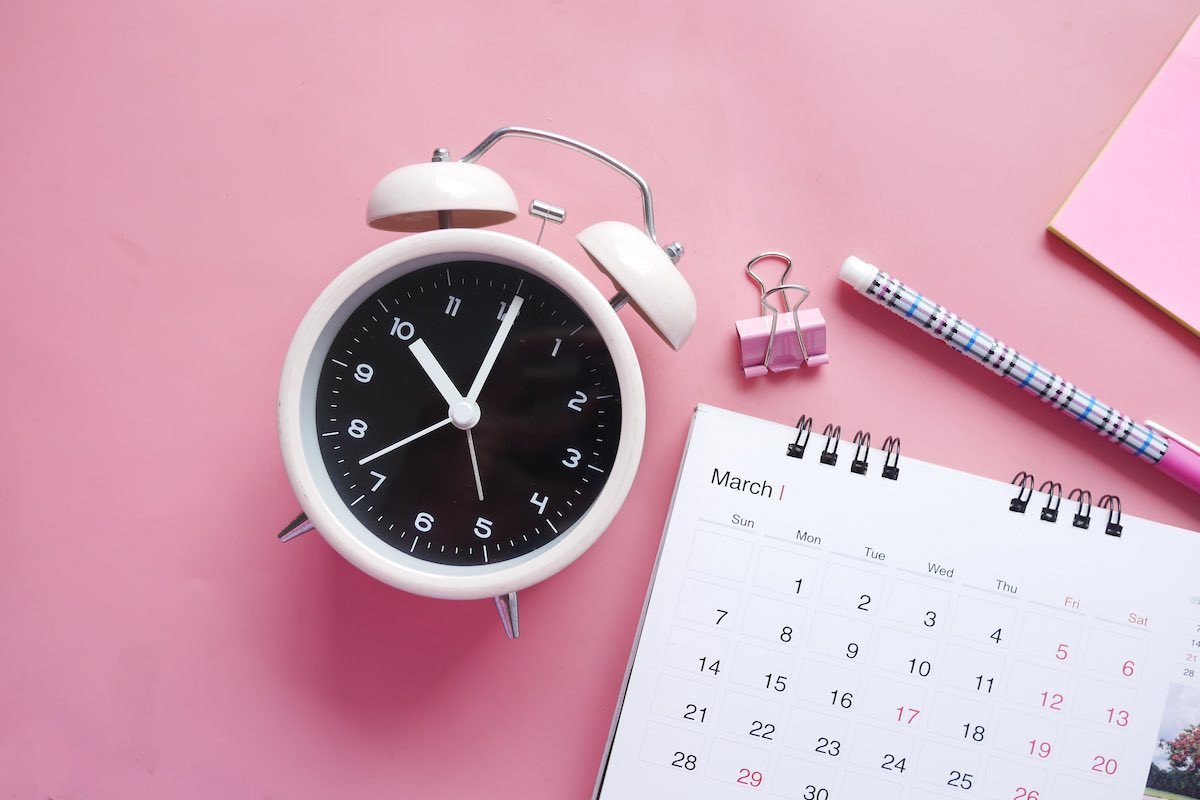Whenever I read articles on average savings by age, I have a good, long belly laugh. It's the kind of laugh that turns into a cry...
We've all seen catchy headlines like, "You should have $XYZ in your bank account by age 25 or you have failed—miserably!" I know I have.
Headlines and articles like this just aren't helpful—unless you already have that money in your savings account. When you don't, you might throw your hands up, throw a deep cleansing face mask on, and hop online to order something to soothe your pain.
Or, at least, that's been my style.
In a perfect world, we are all born with a little nest egg bank account chock full of money—and we sit back to watch it grow. In reality, that's not true for many of us.
Everyone has a different life with a different foundation, different priorities, needs, expenses, and—let's be honest—desires. All of these things affect how
our bank accounts wax and wane.
So, rather than taking a shame route, I wanted to try to put together a savings guide that can withstand a bump in the road, an unexpected expense, a layoff, or a particularly damaging bout of retail therapy.
Editor's Note:
This article is meant to help you create guidelines for creating savings goals, create parameters for emergency savings, and start thinking about building retirement savings.
No money advice is ever cut and dried. We all have different earnings, responsibilities, and financial goals. Use this as a starting point to estimate how to build realistic savings over your lifetime.
How to Build Savings Without Shame
Shame-based tactics are used often—because they actually work against you!
If you're going to tell me I'm an idiot for spending $45 of my monthly budget on Coconut Bobo Bars, I'm going to believe you—and then I'm going to feel so bad/weird/guilty that I'm going to spend $90 on those same bars next month. I showed you!
Bottom line: Shame-based tactics set you up to fail. That's why the diet industry is—and always will be—a multi-billion dollar industry (
$192 billion, to be exact!)
We're going to combine figures from the experts, from regular people, and we're going to try to land somewhere in there. No bank account, no budget, and no personal expense sheet are built the same, so let's stop planning like they are.
Before We Dive In: A Reality Check
We all know it's been a tough quarter, a tough year, and a tough decade. I graduated college in 2007, and financially, it feels like every time I can get a little ahead, a worldwide event or personal expense knocks me back into reality. Whenever we share this article on Instagram, we receive negative feedback, which I get.
Some of the "shoulds" I share in this article seem absolutely impossible. As someone nearing age 40, I can assure you that I have nowhere near 3x my salary saved yet.
Just ask the recession (which one?), the pandemic, the two crowns in my mouth, my two children, my car, my rent, my insurance, and my emergency tonsillectomy!
How Much "Should" I Have Saved by Age 25?
We're starting with age 25 because, at this point, many will have been in the workforce for a few years. Having a savings expectation at age 20 is—assuming a lot. Here's the deal. We don't want to say you should have nothing saved by age 25, but then again, that is kind of what we're saying. Let us explain.
By age 25, you're still a young one. You may have funneled all your savings into getting a rental lease started. Or maybe you put a down payment on the first real car that will belong to you. By the way, these are two monumental moves, so congratulations!
Your early to mid-twenties are about
establishing healthy habits when it comes to money. This is when you should be setting up your 401K, opening a high-yield savings account, and making long-term plans to pay off those student loans.
According to Ally, "in a perfect world," starting in your twenties, you would put aside 10 to 20 percent of your paycheck in a tax-advantaged retirement account.
We know, we know. It's so weird to think about retirement when your childhood bedroom still remains intact—and when your skin looks that good. The sooner you learn
responsible habits in regard to your money, the more control you have over your own life.
What the Experts Say:
You can breathe a sigh of relief. The experts mostly agree with this viewpoint. Use your twenties as a time to learn, grow, and establish healthy money habits.
Aside from saving for retirement, this can mean learning how to cook food at home, how to shop more thriftily, when to visit the library instead of Amazon, and how to generally free up money to put aside for future you—you know, the retired version of yourself lounging in a Tommy Bahama beach chair.
Spoiler alert: By age 30, we will talk about having 0.5x or 1x of your annual salary saved. You can start small if you're reading this article in your twenties. Begin putting small amounts of money away, especially in accounts like
an HYSA (high-yield savings account). The longer your money sits, the more it can grow over time!
How Much Money Should I Have Saved by Age 30?
Wait, you're telling me you don't have any savings yet?
That's fine. We told you we weren't here to judge, and we really aren't going to. Let's dive into what the experts say about the state of your savings at age 30.
What the Experts Say:
First of all, don't freak out. Pretty much every "expert" says different things. Since we aren't the ultimate money experts, we went to Nerdwallet (you've seen the commercials and you might be familiar with the phrase "turn to the nerds"—that's exactly what we did).
Nerdwallet referred to two very different benchmarks for
how much you "should" have saved by age 30. Fidelity Investments urges you to have the equivalent of a year's worth of your annual salary saved by the time you're thirty years old. T. Rowe Price, however, suggests you have half of your annual salary saved by the time you hit the big three-zero.
Here's the thing. Both of these proposed benchmarks sound absolutely terrifying if you have nothing saved—and, in fact, you're actually closer to being "a year's salary" in student debt.
To that end, Nerdwallet also created this
Retirement Calculator. It takes into account how old you are, your current salary, and what you currently have in savings.
As a visual person, I find a
calculator like this to be extremely helpful. It allows me to create a roadmap for success. For one thing, just because you have $0 in savings today does not mean you're 0 percent to your retirement goal. Try it out and make a plan.
What to Consider at Age 30:
Thirty years old in the shadow of the 2008 recession and a slowed economy in 2020 can make you closer to a newborn, financially-speaking. Personally, I graduated in May of 2007 and watched every job I ever wanted vanish into thin air.
That, coupled with fresh-as-a-daisy student loans and my personal expenses, was, in a word, harrowing.
At the date of publishing, our recent 2020 and upcoming 2021 graduates are looking at a similarly challenging situation, but you can still build toward a future.
Make sure that, when planning for savings or a budget, you're not just taking a raw number that does not consider you, as a human in the world. Your budget, your savings, and your debt payoff schedule need to make sense in your life.
Create goals and benchmarks because they are great to aspire to, but don't fall victim to "diet" games when you need to pull money out of your savings for a car repair (e.g., "Well, my savings is blown, so I've failed and I'm done.").
When building your budget around age 30, you might consider these elements of your life:
- Your student loans (do they ever go away?)
- Rent or mortgage
- Health insurance
- Emergency fund (we'll dive into this later)
- Future plans (an education fund for your future child, perhaps?)
How Much Money Should I Have Saved by Age 40?
So this is 40.
How much should you have saved when you're beginning your fifth decade? Let's see what the experts say.
What the Experts Say:
According to
Ally, by age 40 you "should" have saved three times your income.
This seems like a big jump, especially when you compare it to the half or one year's worth of salary you "should" have saved by age 30. But, you have ten years between ages 30 and 40. In that time, we hope
you received a few salary increases which, in turn, allow you to pocket a little more each month towards savings, retirement, and that emergency fund.
So, the imperfect math, according to Ally, is to have this cadence for savings between your 30s and your 40s—and beyond!
- 1x your income by age 30
- 2x your income by age 35
- 3x your income by age 40
- 5x your income by age 50
- 7x your income by age 60
- 9x your income by age 70
- 11x your income by age 80
These figures should take into account your planned retirement age, your current lifestyle, your dependents (if any), and what kind of retirement you're aiming for. Assuming you're saving your money in an account with compound interest, your accumulated money is growing itself, too.
For the 25-year olds who are still reading!
We also found a...slightly more aggressive savings plan from a more aggressively-named resource,
Financial Samurai.
According to these money Samurais, you should be saving 10 percent to 25 percent of your paycheck (after taxes) through your 20s. In this way, barring any huge expenses, it would take four years to accumulate a year of your salary. With this "quarter-salary" approach, you're looking at hefty savings by the time you hit your forties.
Based on an annual salary of $65,000, the average 40-year-old enacting this type of saving cadence could expect to have $195,000 to $390,000 saved.
What Should an Emergency Fund Look Like in My 20s, 30s, and 40s?
Building savings is an empowering feeling. It's you taking real control of your own money and watching it pile up in a bank account, completely untouched. That is, until something happens that completely drains it. Like having to get a tonsillectomy at age 27 (yes, it hurt—physically and financially).
Our next piece of advice is to build two buckets of savings. One is for the long-term, like your retirement. The other is for your surprise tonsillectomy, fractured wrist, or broken windshield fund. Or, what if you lose your job altogether?
According to
Bankrate, only 39 percent of Americans have enough cash to cover a $1,000 emergency.
Let's talk about building a separate emergency fund.
What the Experts Say:
If you have savings built right now, take a look at it. How does your savings look if you unexpectedly have to go to the ER (average cost
$1,389 with insurance), pay for a costly car repair, or replace your hot water heater?
When you factor in emergencies over a, say, 40-year career, it can drain your savings. That's why the experts also encourage you to have a separate emergency fund. According to Ally, an emergency fund should equal six months of your monthly expenses. That includes mortgage or rent, utilities, car payments, gas, and you are pretty familiar with the rest.
When Saving "Isn't an Option," aka I'm Drowning in Debt
I would have told you that saving wasn't an option for me, not too long ago.
Remember that survey we talked about at the beginning of this article? The
survey by GoBankingRates that reported over 64 percent of Americans are not prepared to retire with savings also reported that one of the top reasons was, "I'm prioritizing paying down debt."
Outstanding student loans and other debt can make saving seem impossible, but you can do both. If your debt seems to be an immovable beast, well, just try moving it bit by bit.
What the Experts Say:
Tackling your debt is going to be unique to you, but try to chip away while
also saving. Credit Karma's
debt repayment calculator can help you make a plan for paying off your debt on your own schedule. In terms of saving alongside paying off debt, here's the advice from experts.
Finally, You Can Take a "One Percent at a Time" Approach
The benchmark is to put 10 percent to 15 percent away in a retirement account each month, starting with your first "real" job (i.e., when you're working full-time). If you can't do that at age 20, 25, or even 29, you don't have to throw your hands up and declare yourself broke.
Start by putting aside one percent of your salary each paycheck. If your paycheck is $2,000, that's only $20. Increase the amount you save by a percent—and as your salary increases, you may increase your savings. Keep doing this until what you're putting away is "uncomfortable"—that's when you'll know you've reached what you can save and you can even pull back a little.
Other Ways to Get Started on Your Savings











